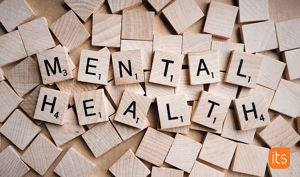Explore customer stories and how our products helped solve problems and meet their needs.

Cultivating Mental Health Inside and Outside the Classroom
Translation generated by an AI translation service
Teachers' mental health is undoubtedly impacted by the weight and responsibility they bear, extending far beyond the typical 09:00 to 15:00 timeframe. They frequently work long hours despite low resources and an insufficient work-life balance.
Consequently, burnout rates rise, and the working environment becomes increasingly challenging, prompting high turnover rates and causing many teachers to consider leaving their jobs.
According to the Teacher Wellbeing Index 22, published by the UK-based charity Education Support, 75% of education staff described themselves as stressed. And the negative team culture and support have an impact on those being the main reason that drive stress in education workplaces.
In this article, we will explore what burnout is and ways to help prevent it, as well tips to help overcome it.
WHAT IS BURNOUT?
According to Mental Health UK, burnout is a state of physical and emotional exhaustion. It can occur when you experience long-term stress in your job or have worked in a physically or emotionally draining role for a long time.
Common signs of burnout:
- Feeling tired or drained most of the time
- Feeling helpless, trapped and/or defeated
- Feeling detached/alone in the world
- Having a cynical/negative outlook
- Self-doubt
- Procrastinating and taking longer to get things done
- Feeling overwhelmed
For this purpose, addressing the underlying issues causing burnout is crucial because it does not simply fade away with time. In fact, if left unattended, burnout can intensify and have detrimental effects on both physical and mental well-being. Neglecting the signs of burnout can lead to long-term harm and diminish one's capacity and enthusiasm to meet job demands, subsequently impacting other aspects of life. Mental Health UK also emphasizes the importance of recognizing and actively managing burnout to safeguard overall well-being.

Ways to enhance your mental health
Taking care of your mental might help you in dealing with the stressful and demanding environment. Even so, because our individual stress tolerances differ, it is difficult to say with precision whether burnout can be prevented.
However, everyone has the option of taking proactive steps to avoid burnout or simply focusing on enhancing their quality of life. To ensure your well-being, take a look at the tips below, keep an eye out for any symptoms, and get expert help if you have any doubts or questions.
1. Learn how to say no
Learning to say no is a critical skill for preventing and overcoming burnout. You can reduce the overwhelming weight that contributes to burnout by establishing clear boundaries between work and personal life, prioritising activities, and delegating where possible. Putting things into perspective and streamlining your life can also significantly help to reduce stress-related burnout.
But how to say no? BetterUp shares some tips on 10 different ways to say no:
- 1. Sadly, I have something else going on.
- 2. I have another commitment.
- 3. I wish I were able to.
- 4. I’m afraid I can’t.
- 5. I don't have the bandwidth for that right now.
- 6. I’m honored you asked me, but I simply can’t.
- 7. Thanks for thinking of me. However, I’m not able to.
- 8. I’m sorry, I’m not able to fit this in.
- 9. Unfortunately, I already have plans. Maybe next time!
- 10. No, thank you, but it sounds lovely.
Also, here are some strategies to say no more often that Jessica Schubert, a Leadership Expert, shared on her page.
Take a Pause. Take your time to decide if you want to commit. A Yes answer might increase your workload, and a No answer may cut off an opportunity. Weigh up first what serves you best. Don't let a passion project get in the way of getting more important work done.
Offer alternatives and options. You want to be helpful, but you don't want to just say Yes to the request as it stands; consider a timeline that works for you, giving it to someone else but with your supervision, or share the task with someone else. Similarly, when you direct a request at someone, especially when you know they love autonomy, give them options like time, extra resources or approach.
Brief explanation. Show your logic and explain why you have to say No. Don't lose yourself in detail but give an honest and valuable excuse. People making a request may not understand your budget limitations, current workload lack of resources. You can apply the two-sentence rule: 'Sorry, I'm not able to.' Then one sentence with your explanation.
Confidence and conviction. Say I don't, not I can't. Research by Boston College found saying, "I don't" instead of "I can't" when telling someone "no" freed participants from demands. "I can't" shows a feebleness and uncertainty, like your explanation is on shaky ground. "I don't" implies a conviction, you've set boundaries for yourself, and you honour them — it exudes stability.
Ask for permission to say No. In many situations, we feel we can't say no. For instance, when our boss assigns us work. Try to reason with them by respecting their authority and honesty. Ask them to explain how a project or request might affect other work or deadlines. If they don't want to hear it, you'll do your best, but managers don't always know your workload.
2. Practice self-care
Implementing practical strategies such as practising mindfulness or meditation, maintaining a consistent sleep routine, and enjoying quality time with loved ones can help address neglected areas of self-care.
Taking these proactive steps not only aids in recovery but also fosters resilience and enhances the ability to cope with the demands of the teaching profession.
Here are some ideas to help you create your own self-care time:
- Eat healthy food – according to Sutter Health, eating well help us think clearly and feel more alert. It can also improve concentration and attention span. Conversely, an inadequate diet can lead to fatigue, impaired decision-making, and can slow down reaction time. You may also read more about brain food on our blog.
- Practice some yoga and meditation – some good apps are available like Headspace and Calm to guide you in meditation, and incredible yoga YouTube channels like Yoga With Adrienne and Charlie Follows that have short and free practices.
- Exercise frequently – if you can, do it in the morning so you don’t have any excuse to skip it later. Or try to join some local running clubs, gym classes or even Pilates. The University of Cambridge suggests aiming for a minimum of 150 minutes of moderate-intensity activity or 75 minutes of vigorous-intensity activity per week
- Have a great night of sleep - consider turning off all electronic devices at least one hour before going to bed. Also, try to have a cup of tea to help you relax before bed, like chamomile, magnolia and lavender, for example.
- Have new hobbies - it helps with stress reduction and positive emotions. Find something you like to do or get back into some habits you used to have. You can try to learn how to cook a new dish, join a knitting club, learn how to play chess, or learn how to paint, for example.
3. Find someone you can talk to and get support
When you're navigating through tough times, it's crucial to seek support to help you overcome these challenges. Finding someone to talk to, whether it's a colleague or a healthcare professional, can provide you with the emotional backing you need.
It offers you fresh insights into your situation, an opportunity to learn from others who've triumphed over similar circumstances by sharing their experiences, and a chance to confront issues from a different standpoint.
Here are a few steps to consider:
- Choose your confidant wisely.
- Be sincere and open about your feelings.
- Ask for guidance and input.
- Be an attentive listener.
- Broaden your network of support.
- Don't hesitate to seek expert assistance if required.
Remember, if your feelings of burnout or stress are intense and prolonged, it's worth considering professional help from mental health experts.

4. Read
Reading books can be a good ally to help you cope with stress. In a study conducted by the University of Sussex, individuals who had read for merely six minutes exhibited slower heart rates, less muscle tension, and reduced stress levels.
Dr. David Lewis, the neuroscientist who conducted the study, reported that reading, “is more than merely a distraction but an active engaging of the imagination as the words on the printed page stimulate your creativity and cause you to enter what is essentially an altered state of consciousness.”
Here are some suggested readings:
- Essentialism: The Disciplined Pursuit of Less - Greg Mckeown
- The Art Of Saying NO: How To Stand Your Ground, Reclaim Your Time And Energy, And Refuse To Be Taken For Granted – by Damon Zanariades
- At Your Best: How to Get Time, Energy, and Priorities Working in Your Favor (Hardcover) - by Carey Nieuwhof
- The Perfection Trap: Embracing the Power of Good Enough – by Thomas Curran
- How to Build a Healthy Brain – by Kimberley Wilson
It is time to take care of yourself
Teacher burnout presents significant challenges for both educators and their students. To keep the educational spark alive and make teaching a long-lasting journey, educators can dive into understanding the signs, fallout,, and preventive measures.
Recognising the significance of supporting mental health is crucial for educational institutions and governments. By creating a nurturing environment that prioritises educational professionals' well-being, we can positively impact the entire education system.
Did you like this article?
Access our Back to School page for more resources especially made for teachers.



